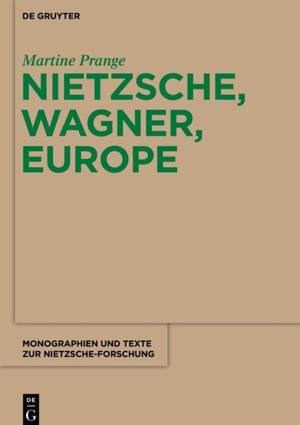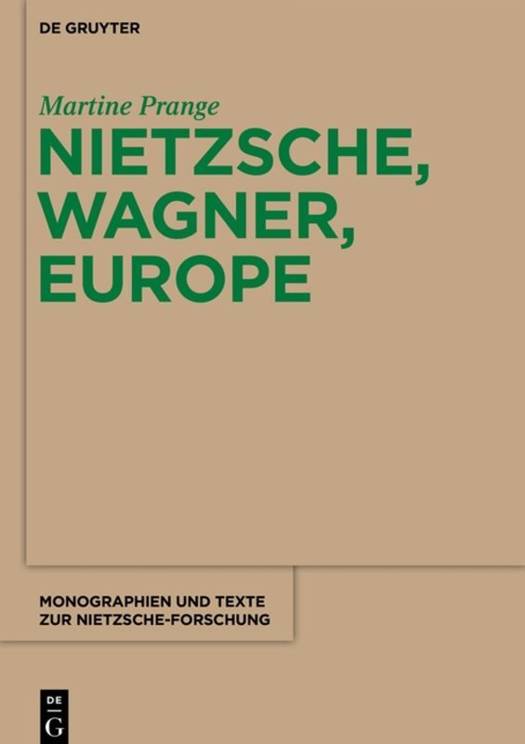
- Afhalen na 1 uur in een winkel met voorraad
- Gratis thuislevering in België vanaf € 30
- Ruim aanbod met 7 miljoen producten
- Afhalen na 1 uur in een winkel met voorraad
- Gratis thuislevering in België vanaf € 30
- Ruim aanbod met 7 miljoen producten
Omschrijving
Friedrich Nietzsche (1844-1900) supported the unification of Europe and reflected on this like few other philosophers before or after him. Many of his works are concerned with the present state and future of European culture and humanity. Resisting the "nationalist nonsense" and "politics of dissolution" of his day, he advocated the birth of "good Europeans," i.e. "supra-national" individuals and the "amalgamation of nations."
Nietzsche, Wagner, Europe analyzes the development of Friedrich Nietzsche's ideal of European culture based on his musical aesthetics. It does so against the background of contemporary searches for a wider, cultural meaning beyond Europe's economic-political union. The book claims that Nietzsche always propagated the "aestheticization" of Europe, but that his view on how to achieve this changed as a result of his dramatically altering philosophy of music. The main focus is on Nietzsche's passion for and later aversion to Wagner's music, and, in direct connection with this, his surprising embrace of Italian operas as new forms of "Dionysian" music and of Goethe as a model of "Good Europeanism."
Specificaties
Betrokkenen
- Auteur(s):
- Uitgeverij:
Inhoud
- Aantal bladzijden:
- 295
- Taal:
- Engels
- Reeks:
- Reeksnummer:
- nr. 61
Eigenschappen
- Productcode (EAN):
- 9783110481631
- Verschijningsdatum:
- 20/06/2016
- Uitvoering:
- Paperback
- Formaat:
- Trade paperback (VS)
- Afmetingen:
- 168 mm x 239 mm
- Gewicht:
- 498 g

Alleen bij Standaard Boekhandel
Beoordelingen
We publiceren alleen reviews die voldoen aan de voorwaarden voor reviews. Bekijk onze voorwaarden voor reviews.











